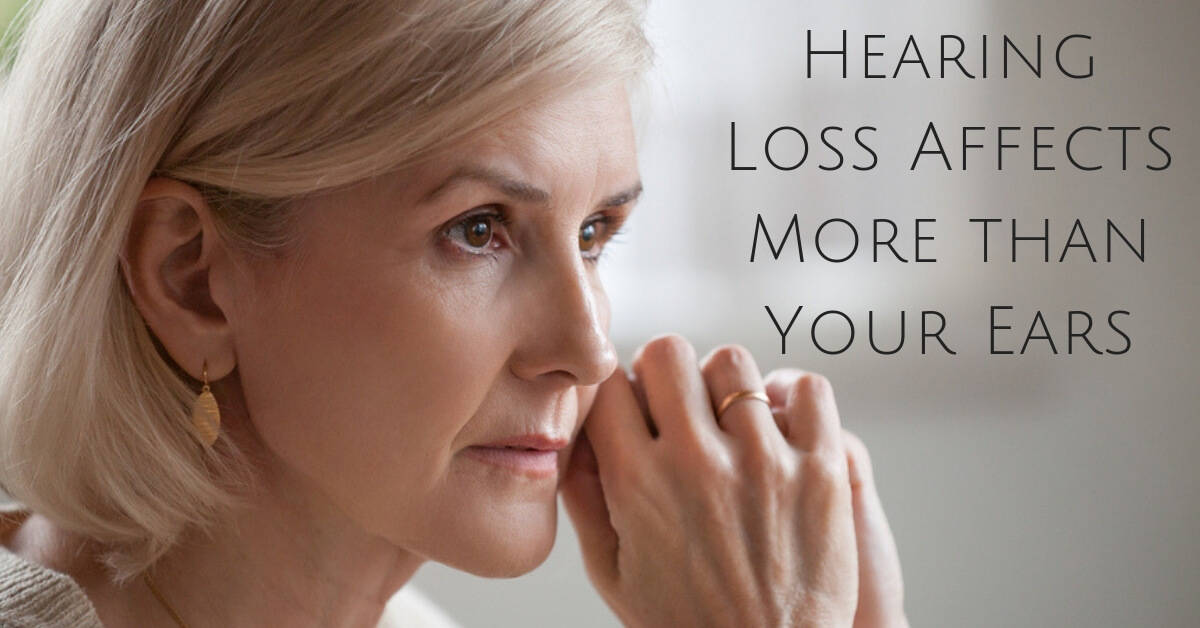Hearing loss affects far more than just your ears. It has far reaching and complex physical and mental affects. Four in five adults who should be wearing hearing devices don’t, and in addition to missing a lot of sounds around them, untreated hearing loss sets them up for many related health problems. Consult Desert Valley Audiology today for a hearing test to determine if you need help staying on the path to better hearing.
Do you think you have hearing loss?
Ask yourself the following questions, and if you answer yes to more than two or three it’s time to get a hearing evaluation.
- Are you turning up the television louder than others find necessary?
- Are you having trouble hearing phone conversations?
- Do you find it easier to talk to someone if they are standing directly in front of you?
- Do you have trouble figuring out what direction a sound is coming from?
- Are you having difficulties understand the voices of children or women’s higher pitched voices?
- Are you avoiding social situations where you know a number of people will be talking at the same time and you will be expected to participate in the conversation?
- Do you have trouble understanding servers at restaurants?
- Do voices sound muffled?
Research has shown that hearing loss leads to other health issues such as increased risk of falls, injury, fractures and sprains, heart attack, stroke, hypertension, diabetes, sleep apnea, and even social isolation.
Hearing loss and depression
One study conducted last year by the National Institution of Deafness and other Communication Disorders found that more than 11% of those with hearing loss suffered from depression. In fact, researchers noted a significant association between hearing impairment and moderate to severe depression. People who don’t use hearing aids are considerably less likely to participate in social activities, and this isolation often leads to sadness and depression. Hearing loss in older persons is not a harmless condition, according to James Firman, president of the National Council on Aging. A survey of 2,300 hearing impaired adults found those with untreated hearing loss were more likely to be depressed, anxious and paranoid.
Families noted a marked improvement in the general outlook of family members who began using hearing aids, and commented that their mood improved. Another study noted 42% of those surveyed who had hearing aids regularly participated in social activities while just 32% of those who didn’t use hearing aids joined the activities.
Hearing loss treatment
More than 48 million Americans are experiencing hearing loss. Nearly two-thirds of adults over the age of 70 have some hearing loss and more than 30% of middle-aged adults also have hearing loss. Hearing loss is one of the most prevalent medical conditions, along with arthritis and heart disease. However, many adults who would benefit from hearing devices don’t wear them. If you have hearing loss you might think you can get by without hearing aids, but the reality is that you’re risking a lot more than missing the odd word here and there.
Hearing aids significantly improve quality of life for those who have hearing loss and their families. Hearing loss affects an individual’s physical well-being, mental health, and general outlook on life.
Hearing aid users report an improvement in relationships at home, feelings of self-esteem, relationships with grandchildren, better overall mental health, a higher sense of safety, a better social life and better relationships at work.
Get that hearing test sooner rather than later
Hearing loss affects far more than just your ears. Do the right thing for your physical, mental, and emotional health and call us today at Desert Audiology to schedule a hearing evaluation. Even if you don’t think you have hearing loss, it’s always a good idea to set a benchmark on where your hearing health is. And if the test reveals that you have hearing loss, our team of hearing health specialists will help you find the perfect hearing aids that will match your lifestyle, budget, and hearing needs, whether you need help hearing at the office, at home, or at the park with your grandkids. Don’t delay, but give us a call today and take the first step in looking after your ears and your hearing health.

